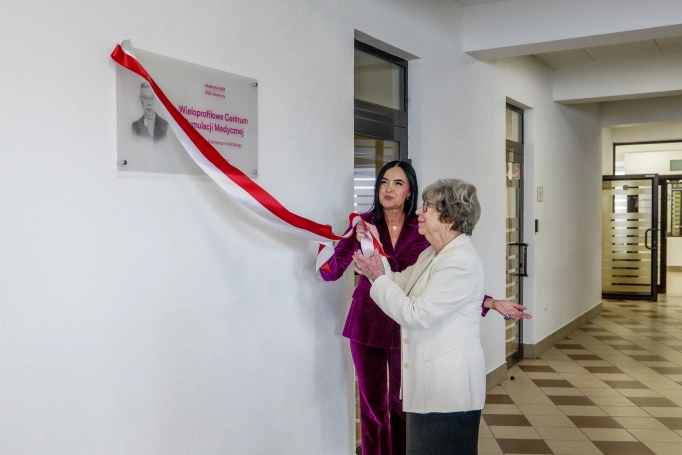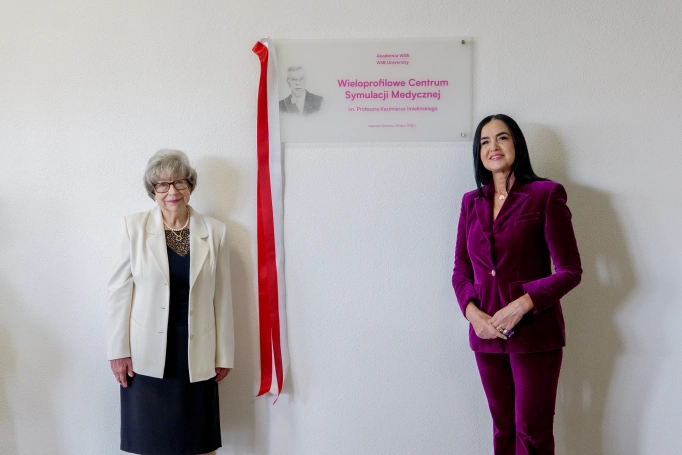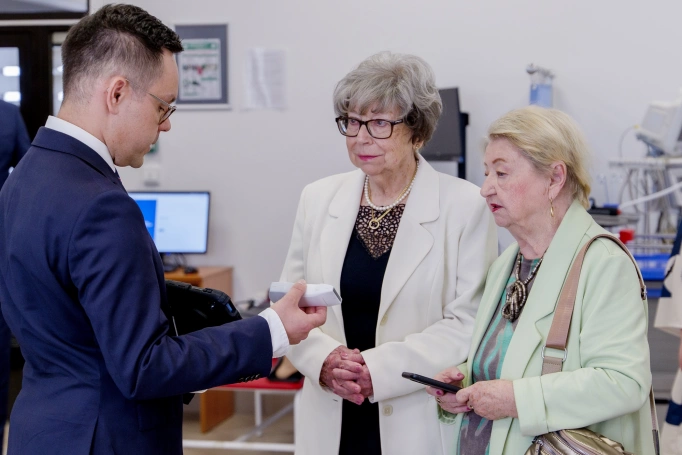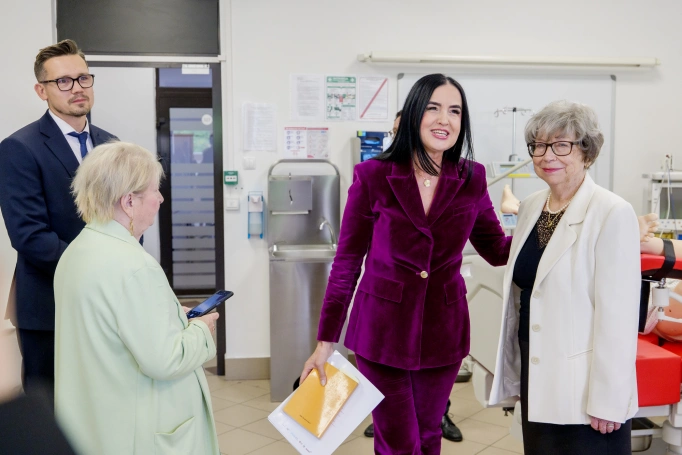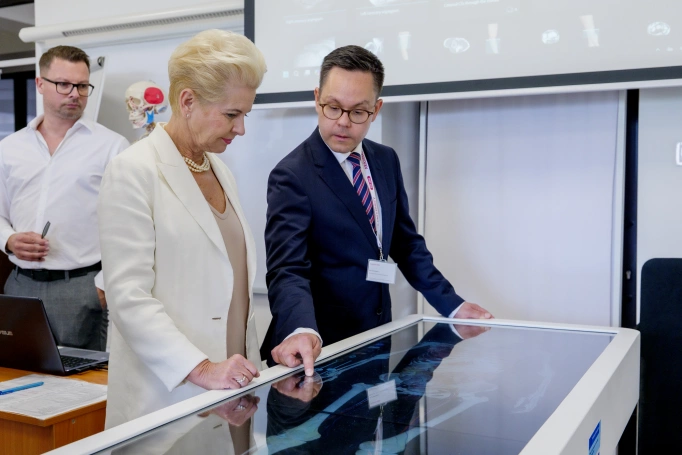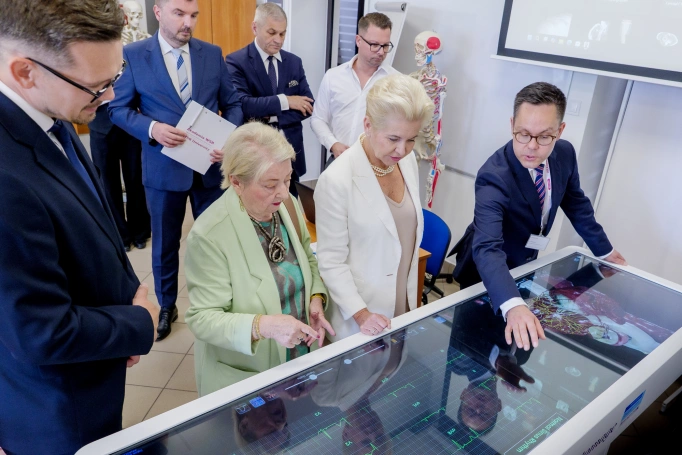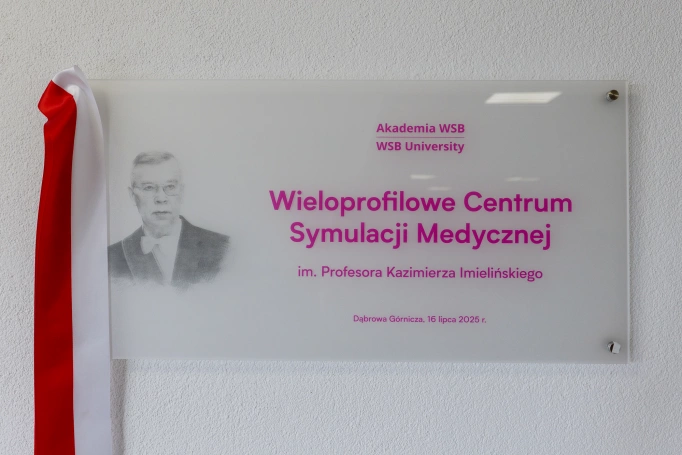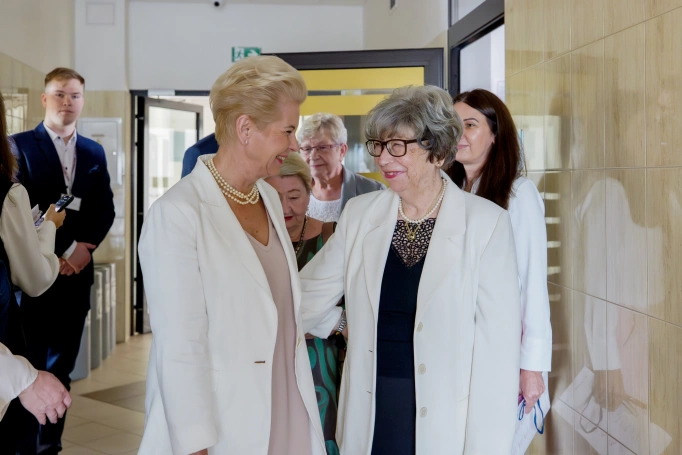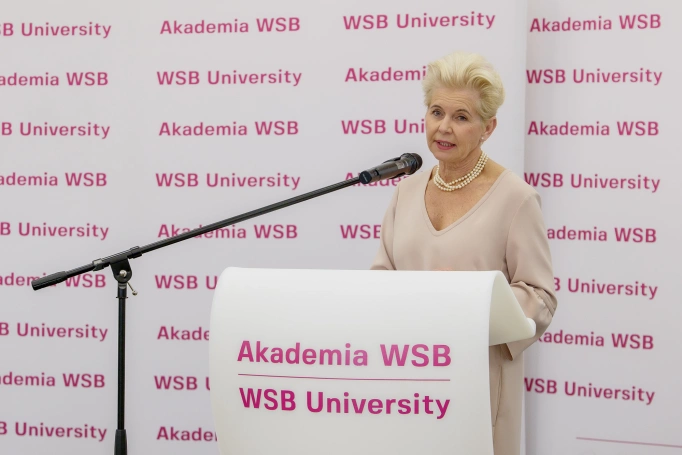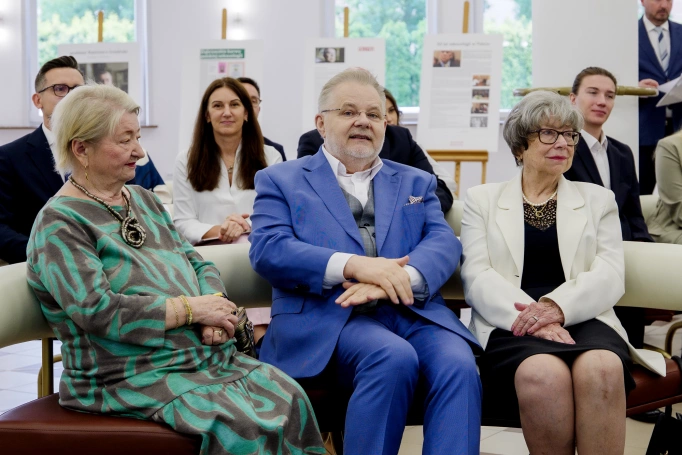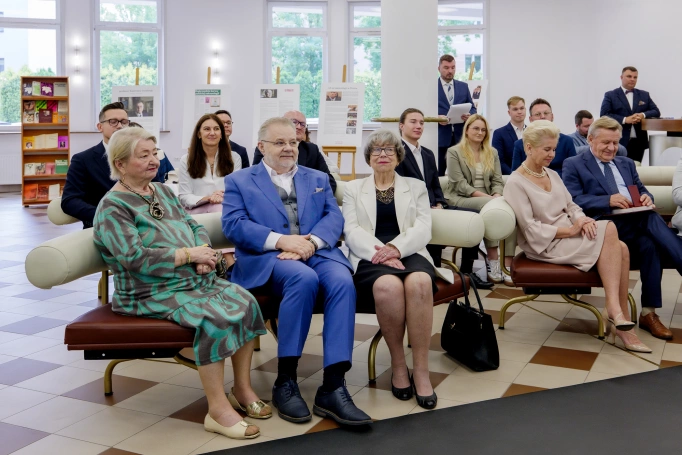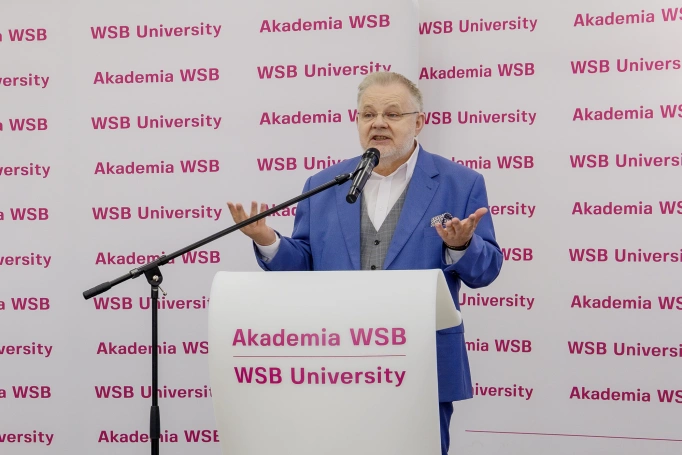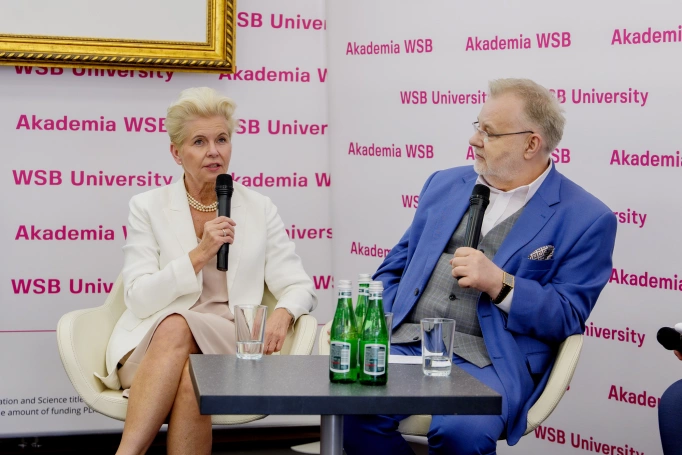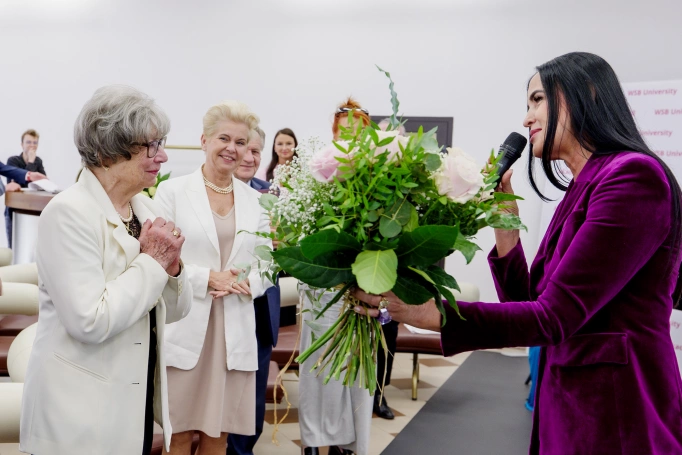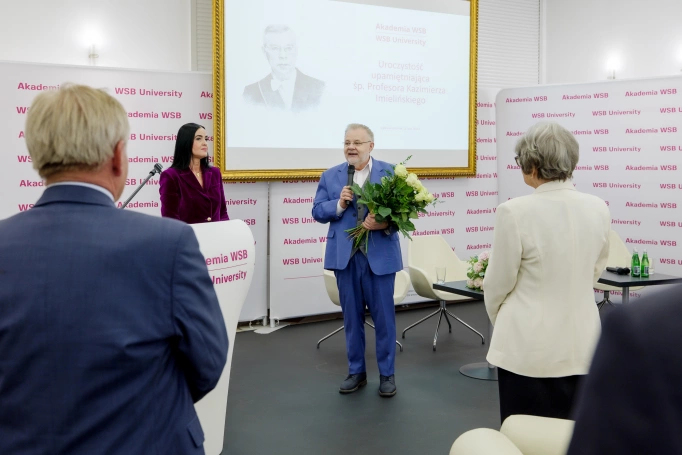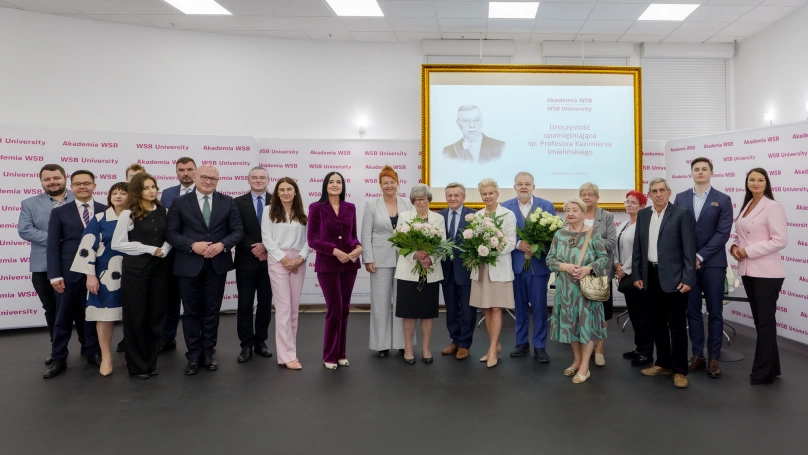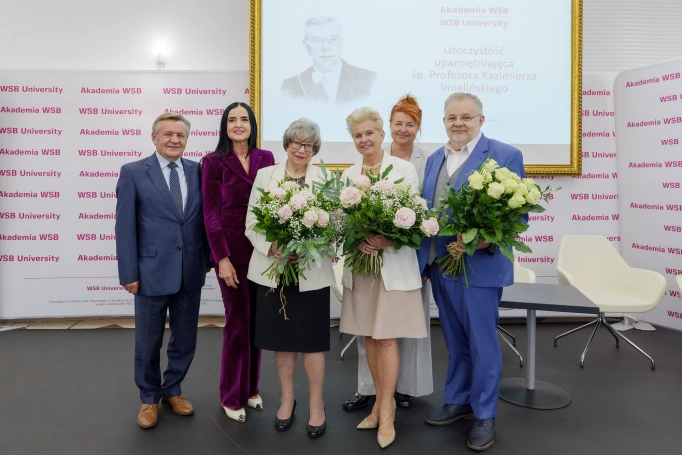- Student
- Student
- News
- Business School
- Doctoral School
- International Dean’s Office
- International Cooperation Office
- Academic Career Office
- Academic Sports Association
- Library
- Student Groups
- Internships
- Electronic Examination Center
- Scholarship office
- Finance Department
- Your Stay in Poland
- Academic Schedule
- The Centre for People with Special Needs
- Alumni and Students Association
- Personal Student Profile
- Support Zone
- Virtual University
- Contact
- Individual Study Plan
- Admissions
- Admissions
- Research
- University
- Erasmus+
Data
16.07.2025
Kazimierz Imieliński Medical Simulation Centre at the WSB University’s Collegium Medicum – For the Humanization of Medicine
56 honorary doctorates awarded across 4 continents, 70 published books, over 260 scientific papers, thousands of patients – yet only one such Professor.
Kazimierz Imieliński – a man who transformed sexology into a recognized field of science, and medicine into an art of empathy.
A Centre with Heart – Named After Professor Kazimierz Imieliński
On the 15th anniversary of Professor Kazimierz Imieliński’s passing, WSB University paid special tribute to this outstanding figure. The Medical Simulation Centre at the WSB University’s Collegium Medicum has been named in his honour. A commemorative plaque was unveiled on campus during a ceremony attended by Professor Imieliński’s family – his wife, Eva-Maria Imieliński, together with WSB University Rector, Professor Zdzisława Dacko-Pikiewicz.
The event gathered distinguished guests from the worlds of science, medicine, and local government, including Senator Dr Beata Małecka-Libera, former Secretary of State at the Ministry of Health, and Zbigniew Podraza, former Mayor of Dąbrowa Górnicza.
Humanizing Medicine – A Systemic Challenge, Not a Moral Luxury
After the ceremony, guests were invited to tour the modern facilities of the Collegium Medicum, equipped with state-of-the-art medical simulation technology. The second part of the event was formally opened by Senator Dr Beata Małecka-Libera, who shared personal reflections on Professor Imieliński.
Participants then attended a lecture by renowned sexologist and educator, Professor Zbigniew Izdebski. His presentation served as an introduction to a unique panel discussion on the humanization of medicine – a subject deeply aligned with Professor Imieliński’s ideals and highly relevant to the current challenges faced by healthcare systems.
Panelists included Dr Beata Małecka-Libera, Zbigniew Podraza, Professor Katarzyna Szczepańska-Woszczyna – Vice-Rector for Science and Education at WSB University, and Dr Adam Kabiesz – Dean of the Collegium Medicum.
The experts were united in their conclusion: humanizing medicine is not a slogan for social campaigns, but a systemic necessity. A patient must be seen not as a clinical case, but as a person – with emotions, a life story, and a need for trust. The role of education in supporting this shift was repeatedly emphasized.
WSB University – Teaching How to Heal, and How to Be Present
WSB University is committed to developing a human-centred model of education – integrating modern technologies with ethical values, knowledge with empathy, and clinical practice with a humanistic approach.
The Medical Simulation Centre – now proudly bearing the name of Professor Kazimierz Imieliński – is a place where students not only practice medical procedures, but also learn presence, communication, and respect. It is a space where future doctors, nurses, paramedics, and physiotherapists are taught not only how to act, but also how to be – with the patient, for the patient, as a human being.
A Professor Who Saw More Than a Clinical Case
Kazimierz Imieliński was not only a pioneer of sexology, but also a tireless advocate for the humanization of medicine. He believed that a doctor who does not understand people should not attempt to treat them. He spoke about the dignity of the patient long before it became a topic of public discourse.
He was the first in Poland to establish a scientific framework for sexology, while continuously reminding us that the human being – with body, emotions, fears, and hopes – must remain at the centre of medicine.
Professor Imieliński worked alongside Albert Schweitzer – Nobel Peace Prize laureate – to develop international concepts of the "Reverence for Life" approach to medicine. He himself was nominated for the Nobel Peace Prize on several occasions. He founded the Schweitzer World Academy of Medicine and the Polish Academy of Medicine, promoting the idea of "universalist medicine" – merging technology with ethics.
He was the first in Poland to speak openly about human sexuality in the language of science, not taboo. A courageous pioneer and devoted physician, he placed the human being – not the diagnosis – at the heart of medical care. As the founder of clinical sexology in Poland, mentor to generations, and founder of institutions that still shape thinking about health and dignity today, his legacy lives on.
By unveiling this commemorative plaque, the WSB University community honours not only Professor Imieliński’s accomplishments, but above all, his vision of medicine – one that is compassionate, open, and wise.






